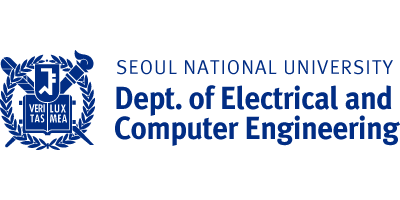Professors Park Nam-kyu and Seon-Kyu Yu increased efficiency of photonic circuits by 'pruning' unnecessary components. (Chosun Biz 2023.04.26)

Nam-Kyu Park, Department of Electrical and Computer Engineering, SNU / Provided by the National Research Foundation of Korea
A domestic research team has succeeded in significantly increasing the reliability of photonic circuits used in technologies such as quantum computers and artificial intelligence (AI).
On the 26th, the National Research Foundation of Korea announced that Professor Nam-Kyu Park and Sun-Kyu Yu's research team at the Department of Electrical and Information Engineering at Seoul National University developed a "photonic circuit pruning technique" that dramatically improves the reliability of quantum computers and photonic machine learning.
Photonic machine learning is a technique for training AI by transmitting information in photons, the smallest unit of light. It is considered a core technology for realizing future advanced computing as it can process vast amounts of information quickly.
To commercialize this technology, photonic integrated circuits which can control and program photon states in real time has to be utilized without restriction. However, as the scale of photonic integrated circuits grows, heat generation intensifies, causing components to overheat, ultimuately leading to a significant decrease in operational reliability.
The research team confirmed that there is a type of "Pareto's law" regarding photonic integrated circuits. Pareto's law, also known as the 80:20 rule, refers to a situation where 80% of the results are caused by 20% of the causes. In the context of the reseach, 80% of the results calculated by photonic integrated circuits come only from 20% of the total components that make up the circuit.
Based on this discovery, the research team explained that they were able to implement a circuit that removes relatively less important components in the photonic integrated circuit, allowing for a more efficient circuit with higher reliability and a lower power consumption. In other words, they were able to create a more efficient photonic integrated circuit through a kind of "pruning" process.
Professor Park said, "This research can be considered as minimalism applied to quantum circuits, leaving only the necessary components." He added, "The fact that efficiency of pruning increased when applied to large-scale quantum computing and deep learning accelerators is inspiring.”
The research paper on this achievement was published on the international academic journal "Nature Communications" on the 3rd of last month.
Nature Communications, DOI: https://doi.org/10.1038/s41467-023-37611-9
Source: https://ee.snu.ac.kr/community/news?bm=v&bbsidx=53569
Translated by: Do-Hyung Kim, English Editor of the Department of Electrical and Computer Engineering, kimdohyung@snu.ac.kr


